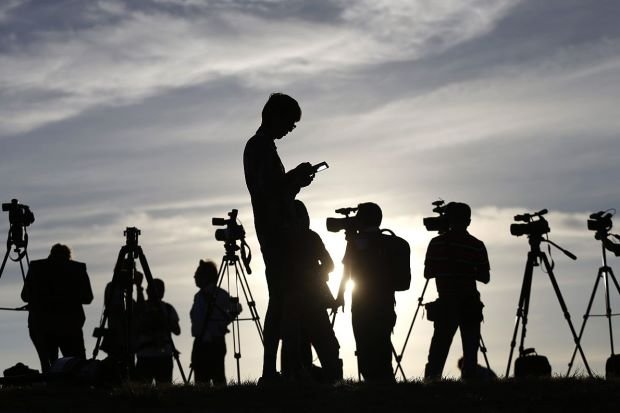June 26, 2025 — A devastating new media report reveals the global ripple effects of U.S. government funding cuts on independent journalism, putting press freedom at risk in dozens of countries.
A comprehensive study titled “Crisis in Journalism: The Impact of the US Government Funding Cuts on Global Media”, released today by a coalition of leading media development organizations—Internews Europe, BBC Media Action, and Free Press Unlimited—paints a dire picture of the global media landscape. Supported by the European Commission’s Directorate-General for International Partnerships, the report highlights how a $150 million funding shortfall, triggered by a 2025 U.S. executive order suspending most foreign assistance, is pushing independent media to the brink in fragile and authoritarian regions.
“Without immediate and flexible support, countless journalists and communities will be left even more vulnerable to censorship, propaganda, and information blackouts,” warned Meera Selva, CEO of Internews Europe.
📉 Key Findings: A Sector in Freefall
The report, based on data from over 50 countries across Africa, Asia, Latin America, and the Middle East, reveals a systemic collapse of independent journalism in many regions:
- Widespread media closures and layoffs: From Sudan to Myanmar, dozens of media outlets have shut down, with hundreds more slashing jobs and reducing coverage.
- Rising risks for journalists: Funding cuts have halted safety and emergency protocols, leaving frontline journalists unprotected.
- Community media disappearing: Local radio, often the only trusted source of information in rural areas of countries like South Sudan, DRC, and Afghanistan, is going silent.
- Surge in disinformation: With fewer media watchdogs, authoritarian regimes and external actors are exploiting weakened media ecosystems to spread propaganda.
“This is not just a financial crisis—it’s a human rights crisis,” said Ruth Kronenburg, Executive Director of Free Press Unlimited. “We risk going blind to the realities in repressive states if these journalists lose their platforms.”
💡 Urgent Call for Action
The report outlines an immediate need for:
- Emergency and operational funding for endangered journalists and outlets
- Core support for strategic, independent media players
- Investment in public interest journalism
- Stronger donor coordination to ensure resilience in fragile media environments
“These devastating cuts leave a vacuum in some of the world’s most fragile information environments,” said Simon Bishop, CEO of BBC Media Action. “Urgent investment will prevent the total erosion of trusted local news and information where it’s needed most.”
🌐 A Democracy Deficit in the Making
As democratic backsliding accelerates globally, the report underscores that even modest financial interventions can help safeguard truth, accountability, and civic engagement in crisis regions.
The consortia warn that, without swift global response, the consequences could be far-reaching—not only for press freedom, but for broader human rights, democratic governance, and peace-building efforts.
🗂️ Click here to read the full report
📩 Media inquiries: press@internews.org
About Internews:
A non-profit champion of press freedom for over 40 years, Internews works in 100+ countries to support local media, train journalists, defend digital rights, and promote access to trustworthy information in the world’s most challenging environments.
Would you like a short LinkedIn version or headline options for this article?


